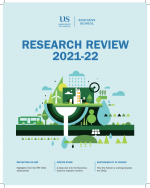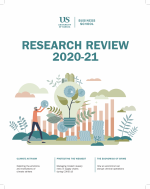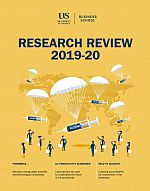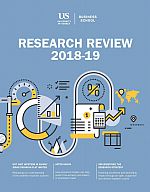Research Review
Read our annual publication of research taking place in the University of Sussex Business School.
Previous editions
You can view previous editions of the research review. These are legacy documents that may not be fully accessible.
2021-22
2020-21
- Research Review 2020-21 [PDF 5.58MB]
- the full Business School 2020-21 publications report [PDF 427.35KB].
2019-20
- Research Review 2019-20 [PDF 2.1MB]
- the full Business School 2019-20 publications report [PDF 253KB].
2018-19
You might also be interested in:
- research centres and projects within the Business School
- collaborating with the Business School
- all University of Sussex research.
 Research Review 2022-23
Research Review 2022-23


